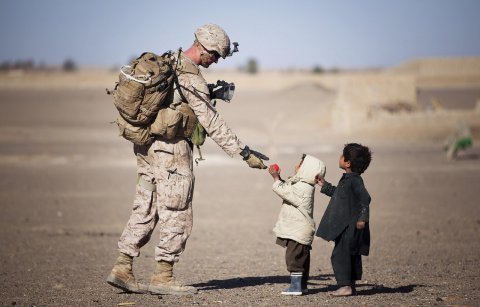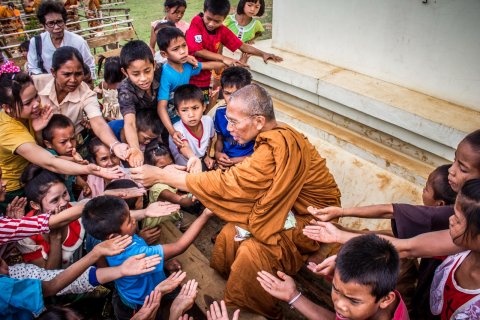When humanity is facing a pandemic, it is a very delicate matter. It is about the safety of the public’s health. People like to be healthy, and they don’t like having health issues because it is the worst thing that can happen to them.
Humanitarian assistance is vital when a country is facing threats such as pandemics, wars, or security problems of any kind.
This being said, let’s read more about what humanitarian assistance is.

What Is Humanitarian Assistance?
Humanitarian assistance is the help that a country can receive from another country in case of wars or natural disasters, such as tornadoes, earthquakes, but also pandemics.
The pandemic threatens the whole country, the security system, the medical system, and the national health and safety. If a country is in danger, another country comes in to help surpass the problem.
The United States of America is the most significant worldwide provider when it comes to humanitarian assistance. The US has given support of more than $8 billion in 2018, which was the most significant help that a country has given.
The US is known for humanitarian assistance from World War II when General Marshall helped Europe through his plan to recover Europe from war damages, to stabilize the economy, and to develop the infrastructure.
Foreign assistance is the aid given by the US to countries that have security problems; they support global peace and provide humanitarian help during a period of crisis.
Today, the US manages humanitarian support for over 100 countries and has 20 governmental programs to support the affairs.
USAID is the program created by the US government that provides humanitarian assistance in times of crisis. Each year, the program reaches at least 50 million people that are in need of food.
Among the food support, USAID also gives relief in Venezuela, Haiti, when they are facing a regional crisis. Also, they helped Nepal after the devasting earthquakes.
How to Get It
Websites such as OCHA, UNICEF, Foreign Assistance, and the US Department of State offer humanitarian assistance to people affected by the pandemic.
You either need to submit a form, email, or call the relevant aid provider to find out about the application process.
Fighting the Pandemic
Today, the biggest threat in the world is the pandemic that killed thousands of people in a few months. Thus, a lot of countries are facing difficulties supporting their medical system and providing masks and ventilators for the infected people.
UNICEF and partners are struggling to protect and improve the life of every child. Being on the frontline puts you at risk of infecting yourself and others too.
The threat of the virus is that it is a respiratory disease. And it affects those that are already ill or have other afflictions. Controlling the number of deaths in a pandemic crisis is very hard for almost any government in the world.
Keeping yourself clean during these periods of crisis is vital for yourself and not infecting the people surrounding you. That is why there are centers that provide soap and water to keep the environment clean.
OCHA, for instance, considers that it is our duty to stick together and respect human rights.
Humanitarian Efforts
In Ukraine, for instance, because all the schools are closed during the pandemic, UNICEF helps governments. They help establish distance learning options for the kids to ensure continuity and to help the parents during the quarantine.
In Venezuela, UNICEF delivered essential medical supplies since the outbreak started and helped thousands of people with cleaning supplies and clean water.
Among these supplies, UNICEF helped with the delivery of protective equipment for those battling on the front line.
Human rights must guide the pandemic response, and the economies need to recover. This is why people apply for humanitarian help amidst the pandemic.

Summary
Providing humanitarian assistance in these periods of crisis is admirable because the world needs it. Helping the front lines with supplies that they don’t have is vital for them in the battle with the virus.
It is essential that everyone who needs aid reaches out to these organizations. Whether it is in the form of medical supplies, water, food, or other necessities.
The recovery, nonetheless, is based on community support and respecting laws and human rights.
